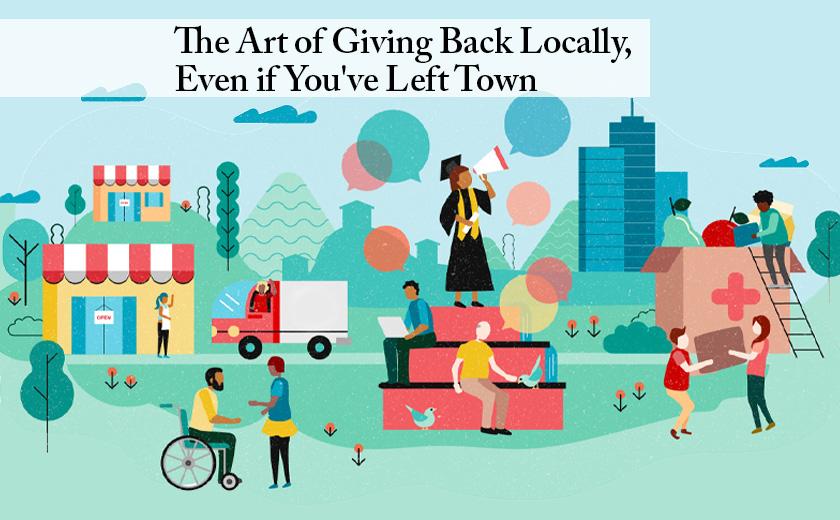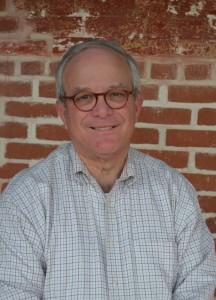It’s usually bittersweet–that time when someone retires. They wave goodbye to their friends, home, and job to begin a new life elsewhere, surrounded by sunshine, grandchildren, hobbies, and other leisure activities.
But for some, and it seems a growing number of adults, retirement is just the beginning of a new life cycle that sometimes involves the continuation of what they were doing before they retired, within the community they left.
Take Howard Freedlander, former MD Deputy State Treasurer and current Spy essayist. Since he writes about the goings on in Talbot County, you probably think the Out and About (Sort of) columnist lived here. Well, he used to. Since 2020, Freedlander has been an Annapolis resident. But after 44 years in Easton, the roots are deep. “I cannot sever my ties to Talbot County,” he has said.
But does he have to?
For Freedlander, who is involved as a committee chair for BAAM (Building African American Minds) and still sits on local boards, that answer is a resounding ‘no.’ “It’s been great to be able to continue to serve Talbot County. And, every week when I write a column for the Spy, I feel as if I’m continuing to cultivate my roots.”
Because of those roots, people know him and seek him out even though he’s no longer a resident. Just in time for last year’s election, he was asked to host a Talbot County Council candidate forum. “When I was emceeing, both the candidates and the audience, which contained many people whom I knew, granted me a degree of credibility because I lived on the shore for so long and still love it.”
Despite how busy he’s kept on this side of the bridge, he’s also becoming well-known in his new home city. That’s not a surprise for someone who is used to being busy. “I’m on the board of Historic Annapolis and on the Advisory Council of the Anne Arundel Medical Center Foundation. I also serve on the finance committee where we live. And then I’ve been involved in a project that gives me a lot of personal satisfaction.” That project was a five-acre piece of land that had been earmarked as a site for 43 townhomes. With Freedlander’s intervention, $6.5 million was secured, and the property was purchased and turned into a passive park focused on the heritage of the historic port of Annapolis. “I was able to work effectively on this,” he said, “because of my experience with the Eastern Shore Land Conservancy, my time as Deputy Treasurer for the State of Maryland, and my firm belief in preservation.”
Not that he hasn’t experienced some changes. “I’ve left a place I loved, Freedlander said, “and moved to a far more populated area, with more traffic lights and longer waits.” There is also the transition to a retirement community. “We’re living in a wonderful retirement community where we own our unit but live by rules set by others, as opposed to living in your own home making your own rules. We had to get accustomed to that.”
Yet life in Annapolis has given him a deeper understanding and appreciation for the Eastern Shore and its people. “It seems that issues such as the Talbot boys and Lakeside have awakened Talbot County citizens. When I looked down on that audience during the forum, I saw people I knew and those I didn’t know. And every seat was occupied. I thought, well, this is really terrific; people in Talbot County are paying attention to a local election.”
Another retiree has perhaps found a solution to continuing local involvement. Just ask Lani Seikaly where she lives, and she’ll tell you, “I live in Chestertown and McLean (Virginia).”
Until 2010, Seikaly lived on the Western Shore. She had worked as a principal through the Maryland State Department of Education and then spent years providing technical assistance and professional development to schools. When close to retirement age, she and her husband moved to Chestertown, a place where she was born but not raised. “Once there, I started getting involved in activities. I was looking for work that I thought had some meaning.” Seikaly created programs, sat on various boards, and got interested in the field of home insecurity. It was through this interest that she founded the Kent Attainable Housing (KAH), an organization dedicated to moving families out of poverty through the asset of homeownership. “We build affordable homes and have a financial literacy support program that helps families get their credit scores in a place where they could get a loan, and we could sell them a house.”
But here is the thing: when she started KAH a little over three years ago, she wasn’t entirely living on the Eastern Shore full-time. Like Freedlander, Seikaly wanted to be near her children. Eventually. But eventually came sooner than they expected when their Chestertown home sold quickly. Since they weren’t quite ready to move away full-time, Seikaly and her husband now have a house in McLean but rent in Chestertown–sort of. Seikaly explains, “We rent flexible nights per month from two different homeowners. One is the home of friends who are only here part-time, and the other is a cottage next to a home of a woman who uses the cottage for her family on occasion. That’s our Chestertown existence.”
Seikaly continues to be very involved in KAH. She feels there is a need here for this type of program. “It was easier to get that going here. I already love this place, and I already have roots in this place.” Yet, Chestertown is a little too far away from her family. “My decision is to be as involved here as possible. And it has its downside because it keeps me from being involved in the area where I now have a home.”
The Chestertown pull continues to be strong, however. She got involved in a project to document and record Chestertown’s black entrepreneurs from the 1960s and 70s. “I love giving voice to folks whose voices are not being heard. I was also involved with Chestertown River Arts and made an exhibit of about seven of these oral histories, where I took photos and used quotes from the interviews. It was gratifying work, and the one time we had more African American presence in the gallery than we did at any other time.”
Seikaly feels there is a difference in living on the Eastern Shore that is hard to find anywhere else, and it comes down to the people. “So often, I won’t know the full history of somebody’s work experience until I read an obituary. In McLean, if I went to a cocktail party, the chief question you get is, what do you do? That’s not how it is in Chestertown, where that’s usually only a curiosity question because what you do is not who you are. And so, I value that too.”
Yet Seikaly is also mindful of another difference. “I feel I’m unlike some of my friends. Some people here think retirement is just for enjoying the great environment, the water, the golf course, etc. I like all those things too, but that’s not what will make my life meaningful.”
Robert “Bob” Grill has also found a meaningful life he cannot entirely move away from. In 2010, he co founded a relief charity called Disaster Aid USA (DAUSA). What started as a Rotary Club project became a worldwide highly successful organization whose mission is to provide humanitarian relief to victims when disaster strikes.
Grill was Chairman of the Board and stepped down four years ago and took on the position of President and CEO of DAUSA. At the time, he and his wife lived in Davidsonville in Anne Arundel County. In 2019, faced with a bigger house than they needed, Grill and his wife moved to Easton.
Like Freedlander and Seikaly, Grill cannot ‘retire’ from the job he enjoys. Lucky for him, he doesn’t have to. At 85 years of age, he no longer goes to help at different disaster sites, but he does whatever he can and continues being involved in what he loves.
Originally from Pennsylvania, Grill started his own construction company and remains somewhat active in this business, loaning out his construction yard as storage space to DAUSA. He’s still a Rotarian, although not as active as he used to be. But that’s because DAUSA keeps him pretty busy every day. “I can’t stay away,” he says. I do the bulk mailings, banking, and bookkeeping. I send out all the thank yous, make up all the mailings, do the brochures and stuff like that.”
As for his move to Easton, Grill is happy with the decision. “There are a lot of clubs here,” he says, “and all through the Eastern Shore that are very supportive of Disaster Aid USA. When there’s a disaster, they’ve always provided funds for us to go out and to do the work.”
Freedlander, Seikaly, and Grill are just three examples of a new breed of retirees who have redefined the word as they continue to do crucial and meaningful work despite their geographical location. After all, if you’re doing good work, does it matter where it’s being done and what you call it?
Val Cavalheri is a writer and photographer. She has written for various publications, including The Washington Post. Previously she served as the editor of several magazines, including Bliss and Virginia Woman. Although her camera is never far from her reach, Val retired her photography studio when she moved from Northern Virginia to the Eastern Shore a few years ago.. She and her husband, Wayne Gaiteri, have two children and one grandchild.





Write a Letter to the Editor on this Article
We encourage readers to offer their point of view on this article by submitting the following form. Editing is sometimes necessary and is done at the discretion of the editorial staff.